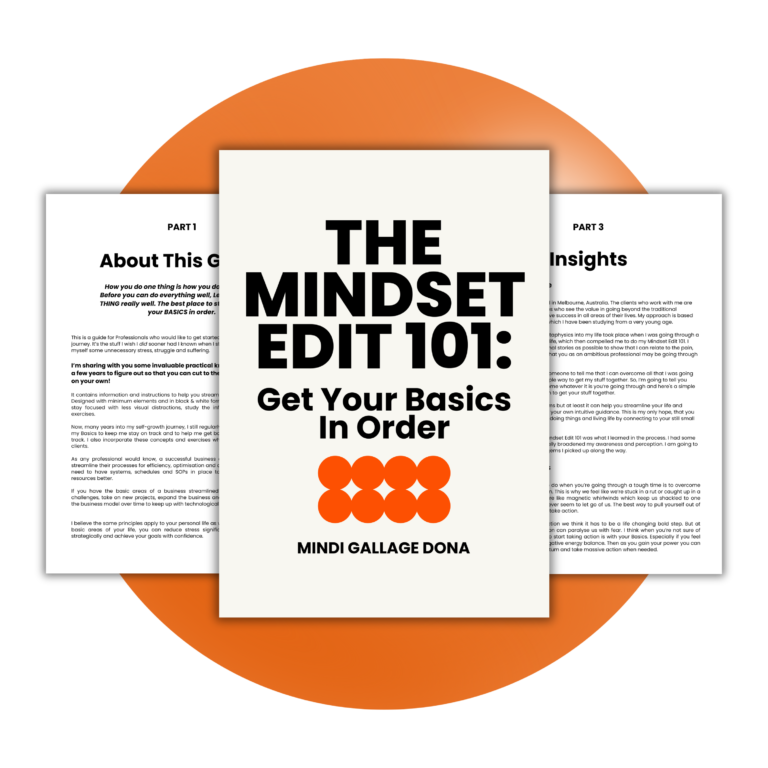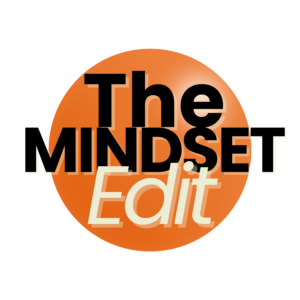There are so many habits, techniques and routines out there which can help us improve mental health, self-care and performance. However finding habits that help you relieve stress and anxiety can be so overwhelming at times, which actually defeats the purpose. I will be talking about 3 habits I have incorporated into my daily routine, help my Coaching clients to practise, have suggested to family, friends and many strangers including Uber drivers who ask for any tips when they find out what I do for a living.
Key Points:
- The 3 Habits
- Why are they easy?
- The How
Why Are They Easy?
If you know me personally or as a client who works with me, I am a big believer in getting the basics right. The basics are usually the easiest to attend to, often deliberately skipped over as they do not give the same supercharged mental stimulation which novelty and challenge do. I have been a victim of them and I still do get distracted by them too. Maybe you get mature as you get older and as you face challenges in your life that I have made these 3 habits, non-negotiable to keep me in check.
As humans we have this tendency to try things based on recommendations from loved ones and people who have gone through similar life experiences. This doesn’t mean that the recommendations will always fit your needs but at least it helps us to get past a lot of the made-up fear of the unknown drama in our head. Reading, seeing or hearing about something another human being has tried and has worked out for them can positively reinforce us. It can help us to try our best even in our darkest times and help us get through until we find our own effective habits to relieve stress and anxiety.
I remember when I was planning to start my own business a few years ago, I watched the come up story of Huda Kattan like, a hundred times. Her business was not even related to mine, but her story contributed amongst a few other things to help me get through a very, very tough time in my life. I traced back to the times in my life where I had my stuff together, had enough energy and even when I was faced with challenges, still got through them graciously. I noticed that I had hardwired daily habits which I practised wherever I was, whenever I could and whoever I was with.
Well during one particularly challenging time, I decided to go on long walks, meditate regularly and drink lots of water daily. Simple, effective and almost free! And they significantly helped me during the lock-downs in 2020 & 2021 as well. These simple habits take very little resources. Most of us have a drink bottle, some comfy shoes for walking and a chair to sit on to meditate. You can choose to do them with a partner or not!
So here are 3 easy habits to add to your daily routine to relieve stress and anxiety.
1. Go On A Silent Walk
If you have experienced an extreme level of stress, or some deep level of emotional distress, you may be familiar with that claustrophobic feeling. You feel like walls are closing in on you, and at the same time you have to deal with your jittery monkey mind. And worst still you may have behaviourally, cognitively and chemically overstimulated your nervous system with trying to relax, sleep, inspire, motivate, laugh, cry, smile, concentrate, focus, escape, avoid, forget, rationalise, introspect, analyse, figure-out and hundred other things you think you should do to relieve your stress and anxiety.
This is where silent walks come in handy. They are a good technique to help you ease into meditating too. You can get your steps in and help you to take a break from your current environments which keep reminding you of your current negative states of mind.
The How
Working out in the gym or practising Yoga at home do not count towards a silent walk! Try to do this on top of your work-out.
- Pick a route and a location where you feel safe. Best to do it when there’s daylight. If there’s a park with some trees and a waterbody it would be ideal as nature has a soothing effect on us.
- Start with just 20 minutes a day. Especially if you have not been physically active for a while. Feel free to make pit stops to catch your breath, drink water etc. You can gradually increase the time to an hour or more!
- At first, try to get it in when you can without being too hard on yourself with a strict time schedule. Later on you will figure out the best time to do it.
- I call them silent walks for a reason. So I suggest not listening to any music, podcasts or talking on the phone and make these into multi-tasking stimulation walks. The whole point is to help your nervous system calm down.
- At first, if you are a chronic productivity addict, you might automatically think through the next task on your list so that you want to optimise your time. But eventually you will stop doing this and learn to enjoy your silent walks and your me times.
2.Meditate For 5 Minutes
I have been meditating on and off since I was about 6 years old and haven’t missed a day since 17th July 2019. I was of course exposed to meditation by my Theravada Buddhist family. While I do not recognise myself as any ist or an ologist I do appreciate different practices by any schools of thought. There really is no English equivalent to the Pali word Bhavana which we refer to as meditation. Most scholars use the word cultivation rather than the word meditation. But let’s use the word meditation because… we don’t want any stress about that!
What meditation does is, it helps you to slow down the momentum of your thoughts, emotions and the hardwired behavioural responses. It also has a soothing effect on you, switching off the sympathetic nervous system with its fight-flight-freeze response and activating the parasympathetic nervous system with the rest-digest response.
I feel it is important that I inform you that for those who know a bit about eastern meditations, if you are thinking of Vipassana meditations please do NOT practise them without a teacher. Even with a teacher, while going through extreme emotional distress, I’d be very cautious.
The How
- Set your alarm for 5 mins. Do not start with more than just 5 and then you can gradually increase the duration up to 20 mins.
- Pick a guided meditation but that is also sort of doing something with someone. The purpose is to learn how to meditate on your own. You can listen to meditative, relaxing music. If the track is longer than 5 minutes you can stop when the alarm goes off. A helpful tip is if your alarm tone is of a siren, maybe set-up a separate alarm with a softer tone just for your meditation.
- Start with setting an intention that you are going to pay attention to this guided meditation or music for 5 minutes. No grand ambitions of enlightenment or receiving answers from your higher self. Just sitting down with a soft focus to meditate.
- You can sit in a lotus position or in a chair. If you are extremely anxious and stressed, you can just lie down in bed or even curl up in a fetal position.
- It is ideal if you can meditate first thing in the morning before you interact with others. Drink a glass of water to activate your body, then coffee maybe and then start your meditation.
If you would like to try a very effective Buddhist meditation then I would like to invite you to try Metta Meditation.
3.Drink Water
One important question I ask clients who come to me for stress, anxiety and burn-out relief is how much water they drink daily. I remember there was a time where I wasn’t drinking enough water during one of my challenging times. I kept noticing that I couldn’t focus, and felt really low in energy. So I would drink coffee and tea to keep me alert but it only made me even more drained and jittery because caffeine can have a diuretic effect on you!
About 70-80% of our body is made up of water. In simple science all the nervous signals from our brain to keep us alive and kicking are carried through fluids. All the cells need water to perform all their trillions of chemical reactions. And then from a metaphysical viewpoint, our consciousness needs a well functioning physical body to express itself and hydration is essential for the body to function optimally. In Ayurvedic teachings water is revered as an important element and the practitioners go to great lengths to prepare their water for drinking.
The How
- Aim to drink 2 to 3 litres of water a day. If you are not used to it, be patient with how often you would need to pee.
- Having a pretty water bottle or a tumbler helps but is not necessary. I prefer to drink out of a glass tumbler or a bottle when I can.
- Prepare your water the night before. You can add fresh lemon, mint leaves or berries to add a little flavour.
- Drink a glass of water first thing in the morning before your meditation. This will help to slowly kick start the digestive system without flooding and avalanching it with heavy drinks and food.
As I always say, please be easy on yourself. Take a soothing approach to your personal development and mental health journey. All these suggestions are to help you relieve stress and anxiety, not to add more to it. Using a habit tracker always helps when incorporating any new habits. I track mine in my planner or And remember, it will take you a few weeks to a few months to form long lasting habits. Remember the easiest things are the hardest to do. Why not give these habits a go?


